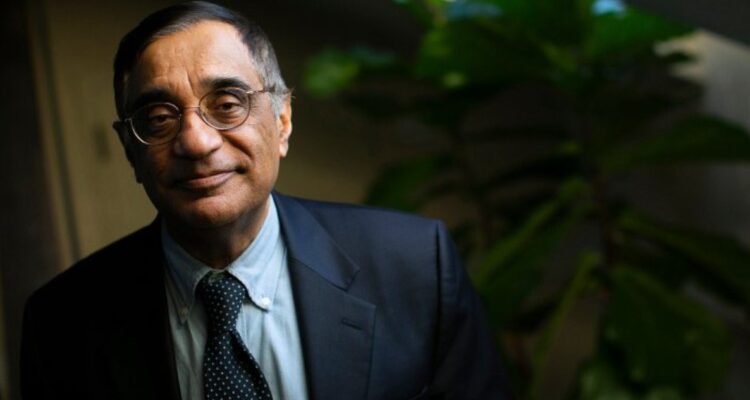Ali Asani has since rallied behind the student protesters who formed an illegal anti-Israel encampment on Harvard’s campus.
By Jessica Costescu, The Washington Free Beacon
The co-chair of Harvard University’s Islamophobia task force signed a statement that endorsed the “Palestinian liberation struggle” and slandered Israel as an “apartheid regime.”
In February, interim Harvard president Alan Garber tapped Ali Asani, a professor of Middle Eastern studies, to co-chair the Presidential Task Force on Combating Anti-Muslim and Anti-Arab Bias, which was created to “examine the recent history of anti-Muslim and anti-Arab bias and its current manifestations.”
Roughly three years prior, in May 2021, Asani signed onto a Harvard faculty member statement that expressed “solidarity with the Palestinian people in their struggle for freedom and self-determination” and accused the Jewish state of “apartheid.”
“Israeli state violence has devastated Palestinian life through a combination of warfare, territorial theft, and violent displacement,” states a version of the statement posted to fellow Harvard professor Ajantha Subramanian’s Medium page.
“Unwavering US financial, military and political support has fueled an apartheid system that institutionalized the domination and repression of Palestinians.”
“In this moment when Israeli ethnonationalist violence is at an all-time high, US military support remains steadfast, and solidarity with Palestine is criminalized, US-based scholars cannot be silent,” the statement continues.
“We demand an end to US support for Israel’s apartheid regime, condemn Israeli state aggression, and affirm our support for the Palestinian liberation struggle.”
More than 70 Harvard faculty members signed the statement.
Asani has since rallied behind the student protesters who formed an illegal anti-Israel encampment on Harvard’s campus.
Just weeks ago, on May 7, Asani signed a faculty letter urging Garber to negotiate with the student protesters behind an illegal anti-Israel encampment. The letter also condemned “threats of disciplinary action” against those students.
Last week, meanwhile, Asani signed another open letter to Garber that condemned sanctions against encampment participants and urged Harvard to allow 14 seniors disciplined over their roles in the illegal protest to graduate.
Neither Asani nor Harvard responded to requests for comment.
Asani provided an update on the task force in a Thursday Harvard Crimson op-ed he authored alongside the task force’s two other co-chairs, public health professor Wafaie Fawzi and international finance professor Ijaz Khwaja.
The task force, the professors wrote, “was charged with understanding how hate and bias have impacted life on campus for Muslim and Arab members of the Harvard community.” The professors went on to cite “incidents” of such bias.
“Students reported getting doxxed by outsiders and insiders alike with little administrative response,” the professors wrote. “Palestinians spoke about feeling their identity ignored and erased by campus-wide messages that did not acknowledge them.” The task force is set to issue policy recommendations in a public report it will release this fall.
Asani and his co-chairs reaffirmed their commitment “to making visible and improving the experience of Arabs, Muslims, Palestinians, and pro-Palestinian allies within our community,” as well as delivering preliminary recommendations to interim president Garber shortly, with further recommendations and a public report to come in the fall.
Asani “has been particularly active post-Sept 11 in improving the understanding of Islam and its role in Muslim societies,” his Harvard bio states. He was awarded the Harvard Foundation medal in 2002 for his “outstanding contributions to improving intercultural and race relations at Harvard and the nation.” In 2020, he received the Harvard Foundation Faculty of the Year Award for “going above and beyond his responsibilities to make Harvard a more inclusive institution.”





